The invention of mobile applications is one of the most incredible technological feats. These apps have been a boon to humans, from finding a location to a job. Everyone today uses smartphone applications for one or the other reason.
Mobile application development is increasing with each passing day. New mobile apps are seeing the light of day now and then.
Earlier, building mobile apps took a lot of work. But, the advent of mobile app development IDEs has simplified the process.
What is an IDE? It is an acronym for Integrated Development Environment. It is a single application combining all the necessary developer tools in a single place. Using it eliminates the need to use various separate developer tools.
Are you planning to develop a mobile application and searching for an IDE for the same? You have landed in the right place.
Here, you will know the 10 best IDEs for mobile app development.
So, let us get started!
What is an IDE?
It is software bringing standard developer tools under one graphical user interface. It facilitates the software development process and boosts the productivity of developers. They do not have to switch between the various developer tools frequently.
As accountants use spreadsheets and writers use text editors, developers use IDEs.
An integrated development environment consists of at least three fundamental developer tools:
- Source Code Editor: It is a text editor enabling developers to write code quickly. It offers various features – syntax highlighting, auto-complete, code refactoring, and bug detection.
- Build Automation Tools: They automate repetitive tasks, run automated tests, and compile source code into binary code.
- Debugger: A debugger inspects the source code, locates bugs, and allows developers to fix them.
Before the advent of IDEs, developers only had the option to use text editors to write code. Also, they had to use dedicated tools to compile and debug the source code. Developing an application earlier involved the following process.
- Writing code in a text editor
- Checking it in a compiler for errors
- Going back to the text editor to make the necessary changes in the source code
The process continues until there are no errors.
Further, they had to use a separate debugger to identify bugs. After that, they had to revise the code to fix bugs using the source code editor.
This entire process requires constant switching between different tools. Since it is time-consuming and cumbersome, it affects developers' productivity.
IDEs have simplified the process by eliminating the need to switch between different tools.
Features
As discussed, a source code editor, automation tools, and a debugger are necessary. There are many other features an integrated development environment offers. They are as follows:
- Code Completion: It identifies and inserts code components in your source code as you write it. This significantly saves time while reducing typos and other common mistakes.
- Programming Language Support: Some IDEs are specific to a single programming language, while some support many programming languages.
- Integrations and Plugins: Many integrated development environments support integration with third-party apps. Also, they allow the installation of plugins. This allows users to enhance the functionality of the development environment.
Along with the above features, some mobile IDEs also feature emulators. An emulator is a computer program that simulates other devices. It enables one system to behave like the other. For example, an emulator makes it possible to run Windows on a macOS system . Thus, with an emulator, you can test your mobile application for different devices.
10 Best IDEs for Mobile App Development
1. Android Studio
Developers: Google and JetBrains
License: Source Code: Apache License, Binaries: Freeware
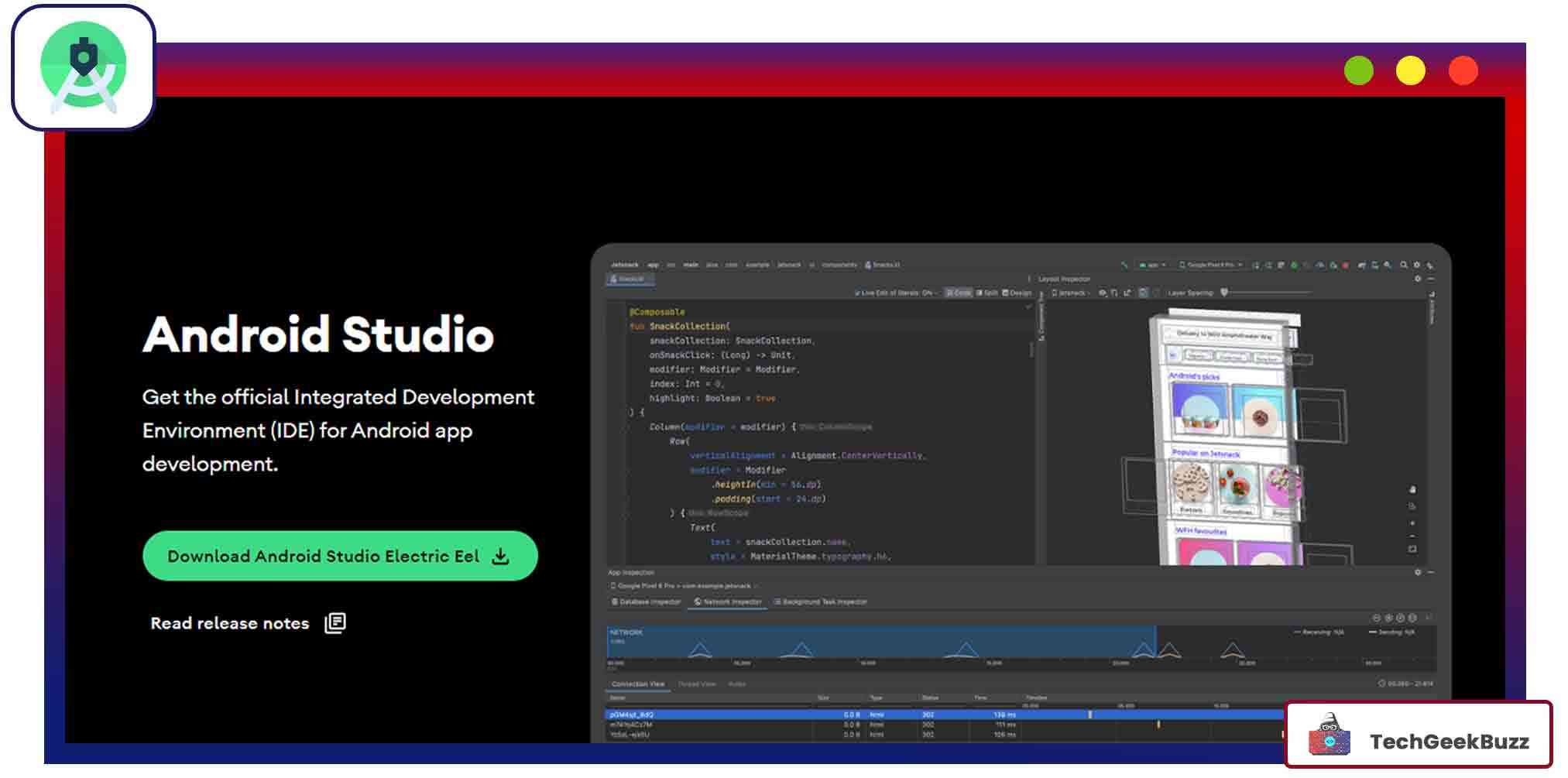
Android Studio is the most popular option for Android app development. It is the official IDE for Google’s Android operating system.
Google has built Android Studio on top of JetBrains’s IntelliJ IDEA, an IDE for Java development.
Android Studio provides all the essential tools required to develop Android apps. You can download it on Windows, macOS, and Linux operating systems.
Features
- Visual Layout Editor: It comes with various UI elements. Drag and drop those elements into the visual design editor to create layouts. There is no need to write XML code. Also, you can preview your layout on different Android devices. It lets you resize the layout to make it compatible with different screen sizes.
- Fast Emulator: Simulate Android devices on your computer with an Android Emulator. It makes testing applications on various Android devices and Android API levels easy. Also, it eliminates the need to use different physical devices.
- Intelligent Code Editor: You can write and manipulate code in C, C++, Java, and Kotlin.
- Flexible Build System: The build system handles compiling source code and app resources and packaging them into APKs and Android App Bundles. Android Studio utilizes Gradle , an advanced build toolkit, to automate and manage the build process.
- Real-time Profiler: It is available in Android Studio 3.0 and newer versions. It provides real-time data about an application's CPU, memory, battery, and network resources.
Pricing
Free
2. Xcode
Developers: Apple Inc.
License: Freeware with some open-source components
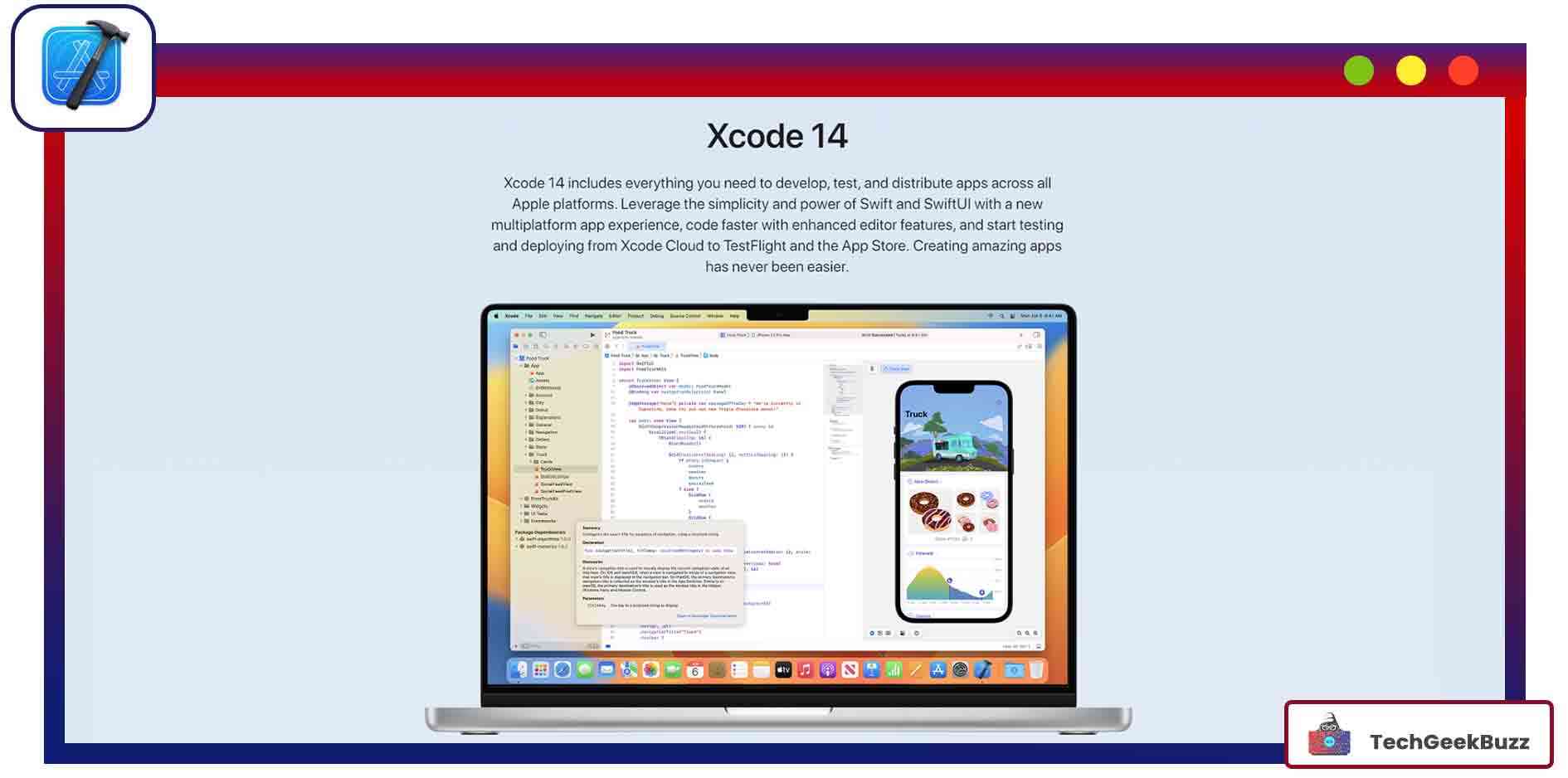
Xcode is Apple’s integrated development environment that runs only on macOS systems. It is famous for iOS mobile app development.
Apple developed Xcode to enable developers to build applications or software for macOS, iOS, tvOS, watchOS, and iPadOS. It has command line tools that ease UNIX-style development using the terminal in macOS.
Features
-
Source Code Editor:
It enables you to write error-less code with its features. These features include
- Code completion
- Syntax highlighting
- Code folding
- Message bubbles that display errors and warnings within the code
- Assistant Editor: Xcode has an assistant button that divides an editor into two panes. The first pane for writing and editing the source code. The secondary pane highlights all helpful files required for the file you are currently editing.
- Interface Builder: Build interactive interfaces without writing a single line of code. Also, you can graphically connect the interface with your source code in the Xcode editor.
- Simulator: A Mac-based simulator to build, install, run, and debug Cocoa Touch applications.
- Compiler: Xcode has a built-in, powerful LLVM compiler for C, C++, and Objective-C languages.
- Graphical Debugger: You can debug your application right from the Xcode editor. Select any application component and debug its code with a graphical debugger.
Pricing
Free
3. Visual Studio with Xamarin
Developer: Microsoft
License: Source code: MIT License, Binaries built by Microsoft: Proprietary software
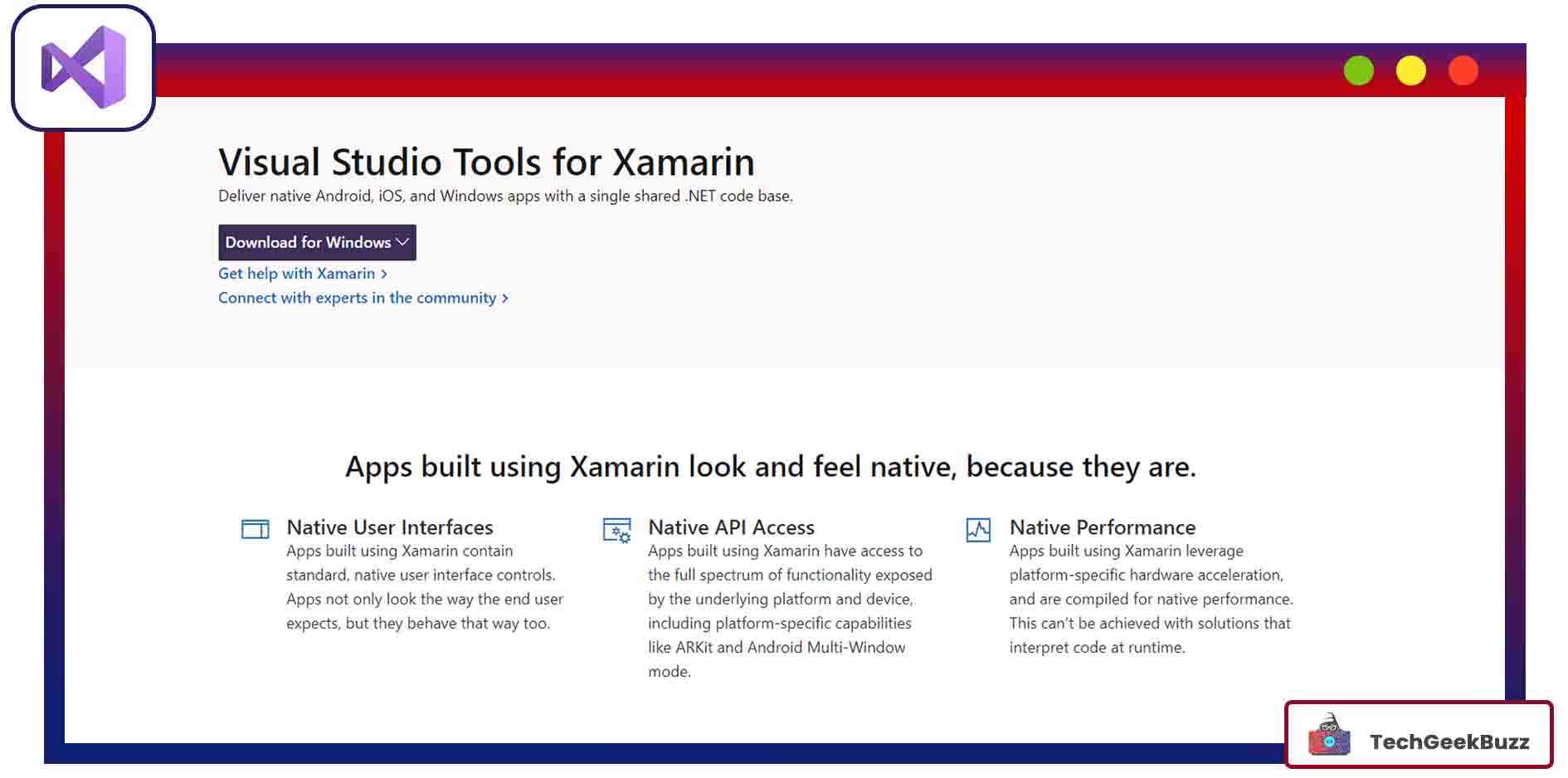
Developed by Microsoft, Visual Studio is a popular integrated development environment for developers. When integrated with Xamarin, it helps in mobile application development. It is compatible with both Windows and macOS.
Xamarin lets you build native Android, iOS, and Windows apps with a single shared .NET codebase. Applications you develop using Xamarin provide a native look and feel because they:
- Contain standard native user interface controls.
- Have native API access. This means they can access all functionalities the underlying platform and device provide.
Features
- Visual Studio Code: A free and open-source code editor with the following features:
- Syntax highlighting and auto-completion: Syntax highlighting improves code readability. Smart auto-completion automatically completes a code based on function definitions, variable types, and imported modules.
- Debugger: Debug your code from the code editor by setting breakpoints, step-over statements, and steps into and out of functions.
- Extensible and customizable: Extend the functionality of VS Code by installing extensions.
- Integrated Source Control: Manage your source code in Git or SVN repositories hosted by any provider.
- Comprehensive Testing: Visual Studio has a test runner that supports major testing frameworks. These frameworks include MSTest, NUnit, and xUnit. You can use them to run and debug unit and automated tests.
Pricing
- Individual: Free to download and use.
- Professional: $45/month
- Enterprise: $250/month.
4. IntelliJ IDEA
Developer: JetBrains
License: Community edition: Apache License 2.0, Ultimate edition: Trialware
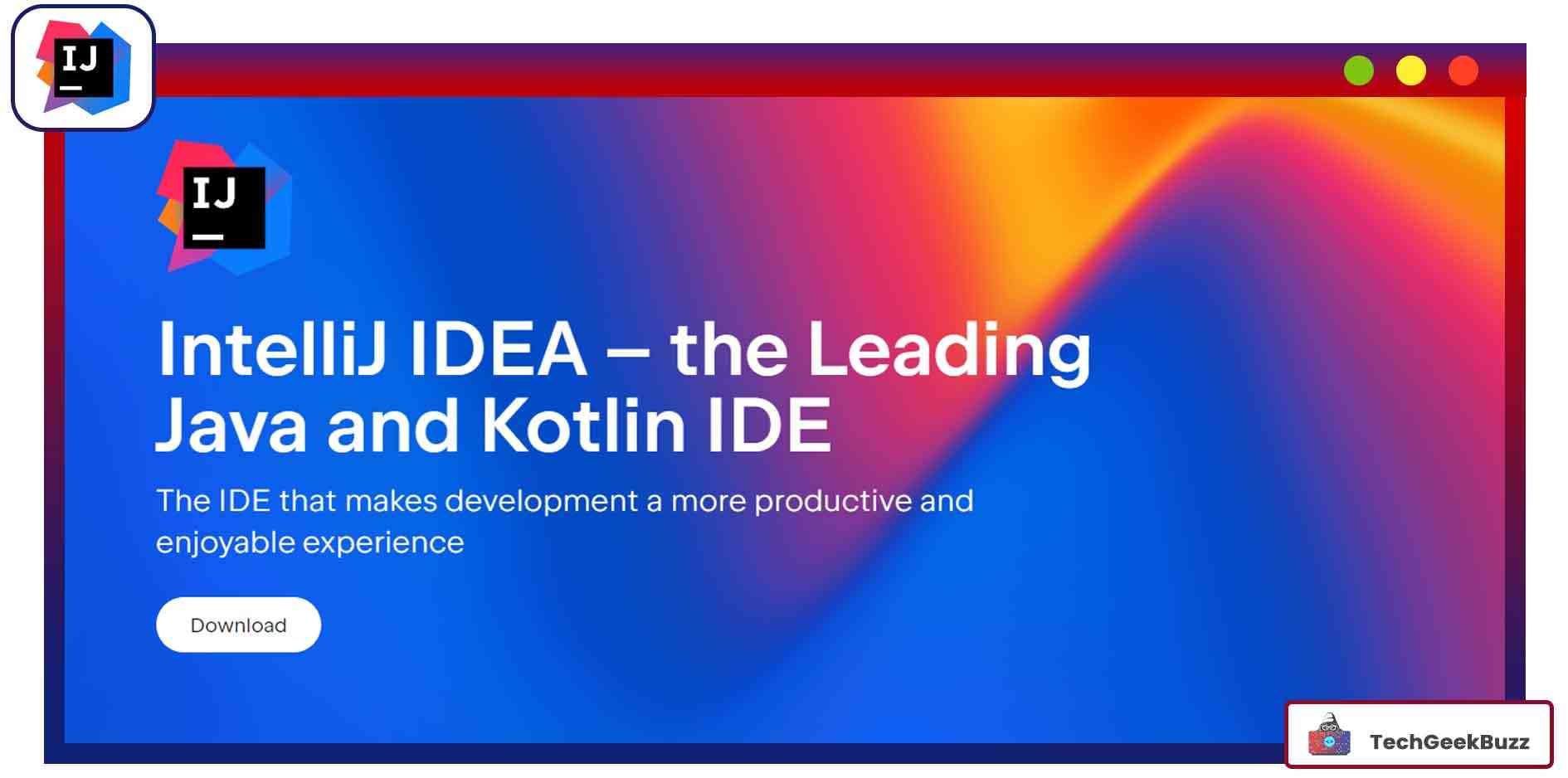
IntelliJ IDEA simplifies Java and Kotlin development. It serves as a basis for Android Studio. Being cross-compatible, it works on Windows, Linux, and macOS systems.
IntelliJ comes in two editions: Community and Ultimate. You can use both of these editions for commercial purposes.
Features
- Source Code Editor: It supports Java, JavaScript, Groovy, Kotlin, Scala, etc. It offers syntax highlighting, code completion, code refactoring, and code navigation.
-
Instant Navigation and Search:
The following features ensure faster navigation and easy searching:
- Search Everywhere: Search for anything in your code, including symbols and classes.
- Find in Files: Find text strings in your project.
- Quick Definition: Identify where and how symbols - tags, classes, methods, functions, and fields - are defined in code.
-
Run, Test, and Debug:
Has a robust toolset to run, test, and debug code:
- Run: Run your code by clicking the green play button at the top-left of the source code editor.
- Test: Supports various testing frameworks, including TestNG, Cucumber, JUnit, and Selenium.
- Debug: Set breakpoints in places where you wish to stop the code execution and inspect its behavior. A debug tool window displays the results of debugging .
- Built-in tools and Integration: It integrates with Maven, Gradle, Ant, and Gant build tools. Also, it has a built-in compiler, decompiler, and profiler.
- Version Control: Supports popular version control systems, like Git, Perforce, Mercurial, and Subversion.
Pricing
- Community: Free forever
- Ultimate:
-
- Organizations: $499 per user per year
- Individuals: $149 per year
5. DeuterIDE
Developer: Didactic Development
License: Freeware and Shareware
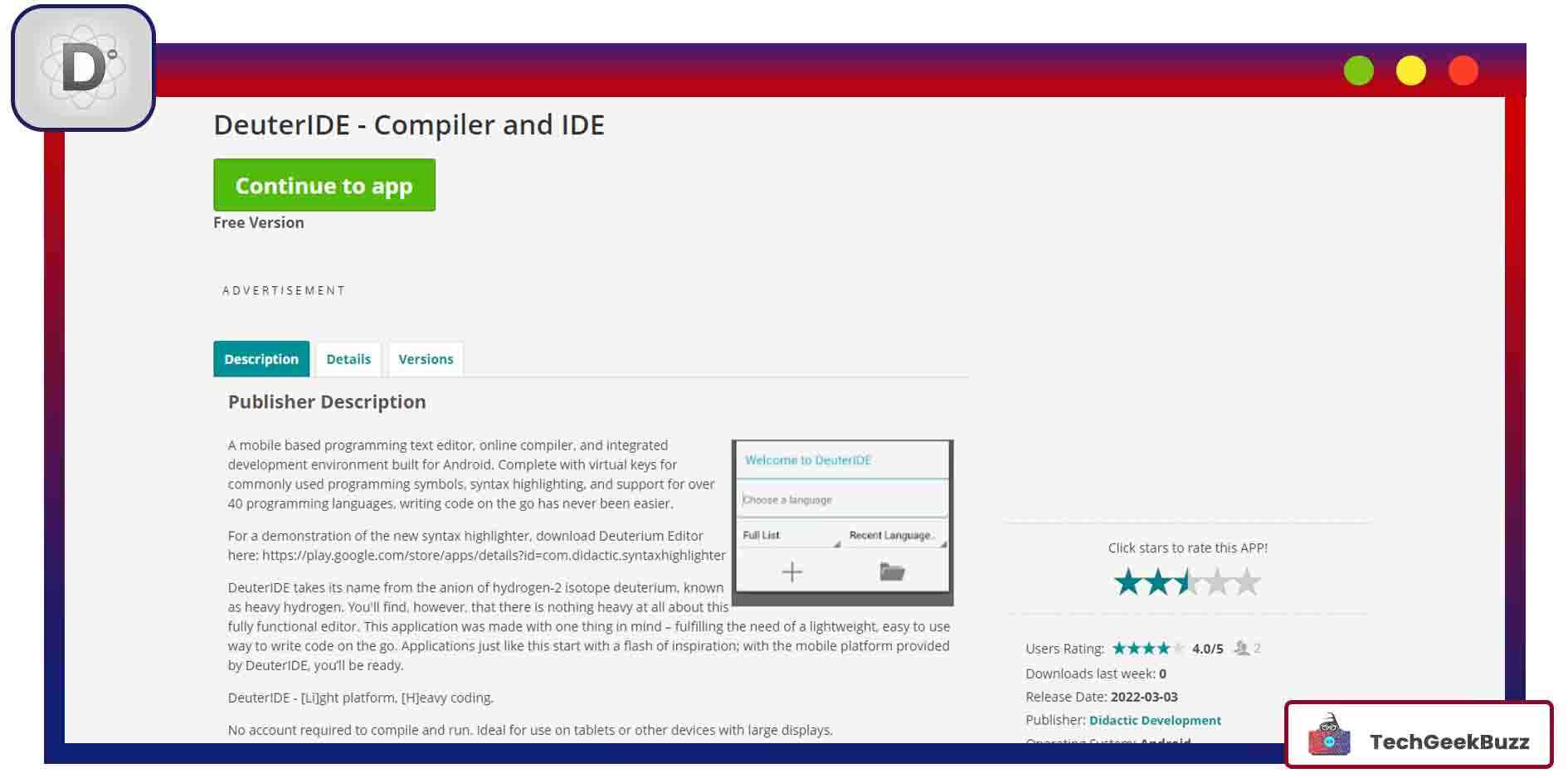
This mobile app IDE takes its name from heavy hydrogen, i.e., the anion of hydrogen-2 isotope - deuterium. It is lightweight and easy to use, compatible with tablets and other devices with large displays. You do not need to create an account to use this development environment.
Features
- The source code editor supports syntax highlighting, automatic indentation, and bracket-matching support. This makes writing the source code easy.
- It integrates with Facebook and Twitter to let you share code with your friends.
- The editor offers features like jump to line, search and replaces, undo and redo, and copy and paste.
- Supports over 40 different programming languages.
- It provides a detailed history of complied submissions.
Pricing
Free
6. Cordova
Developer: Adobe Inc.
License: Apache License 2.0
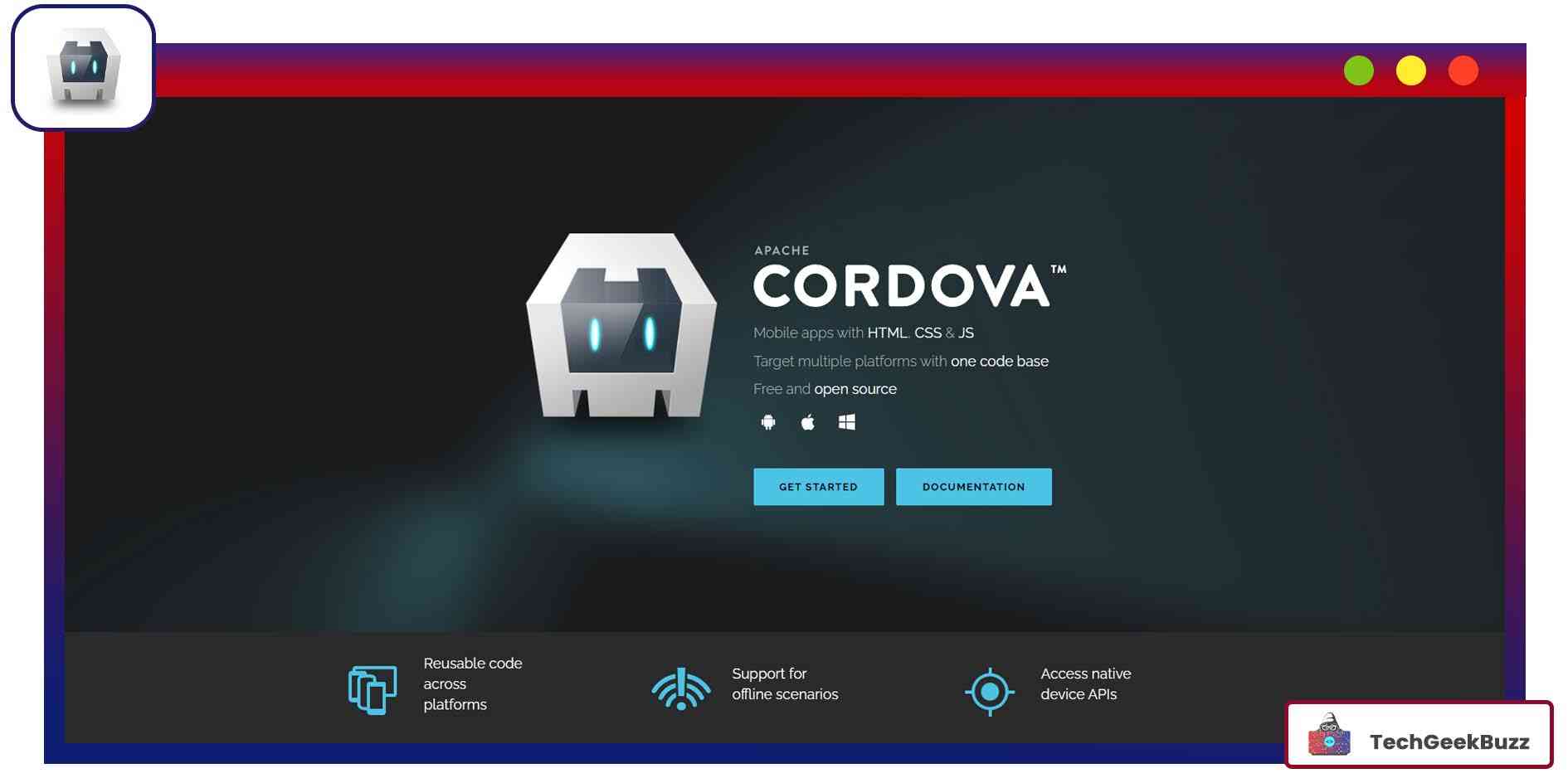
The next entry on our list is Cordova. It enables developers to build hybrid applications for Android, iOS, and Windows devices using HTML, CSS, and JavaScript.
Formerly, Apache Cordova was known as PhoneGap and was initially developed by Nitobi. But in 2011, Adobe Systems purchased Nitobi. They released PhoneGap open-source for developing mobile applications and renamed it Apache Cordova.
Features
- Command Line Interface (CLI): Cordova comes with a command-line interface . You can create new projects, build them on different platforms, and run them on emulators or real devices.
- Core Components: It has a set of core components for building any mobile application. The availability of core components helps you concentrate more on the logic of an application.
- Cordova Plugins: You can extend the functionality of Cordova with the help of plugins.
Pricing
Free
7. Eclipse
Developer: Eclipse Foundation
License: Eclipse Public License

Eclipse the development of Android apps in Java easy and quick. Besides Java, it supports other programming languages, including JavaScript, Perl, PHP, Python, Ruby, C, C++, and Scala.
It consists of a base workspace and an extensible plugin system to customize the development environment.
Features
- Source Code Editor: Write and edit source code in all supported programming languages. The code completion feature identifies the keywords and functions and provides suggestions as you write code.
- Workspace: It has a workspace to bundle all your projects in one place. You can store all images, files, and artifacts of your projects.
- Views: Views, known as perspectives, make navigating the entire Eclipse platform easy. Every view has its own hierarchical data. When you click on a particular view, you get all the hierarchical data associated with that view. For instance, the project explorer view displays the list of projects you are currently working on.
- Integrations and Plugins: Eclipse Marketplace features many plugins. You can download and install them to extend the functionality of Eclipse. Also, Eclipse integrates with many other development tools, including Ant, Maven, and Git.
Pricing
Free
8. Komodo IDE
Developer: ActiveState
License: MPL-1.1
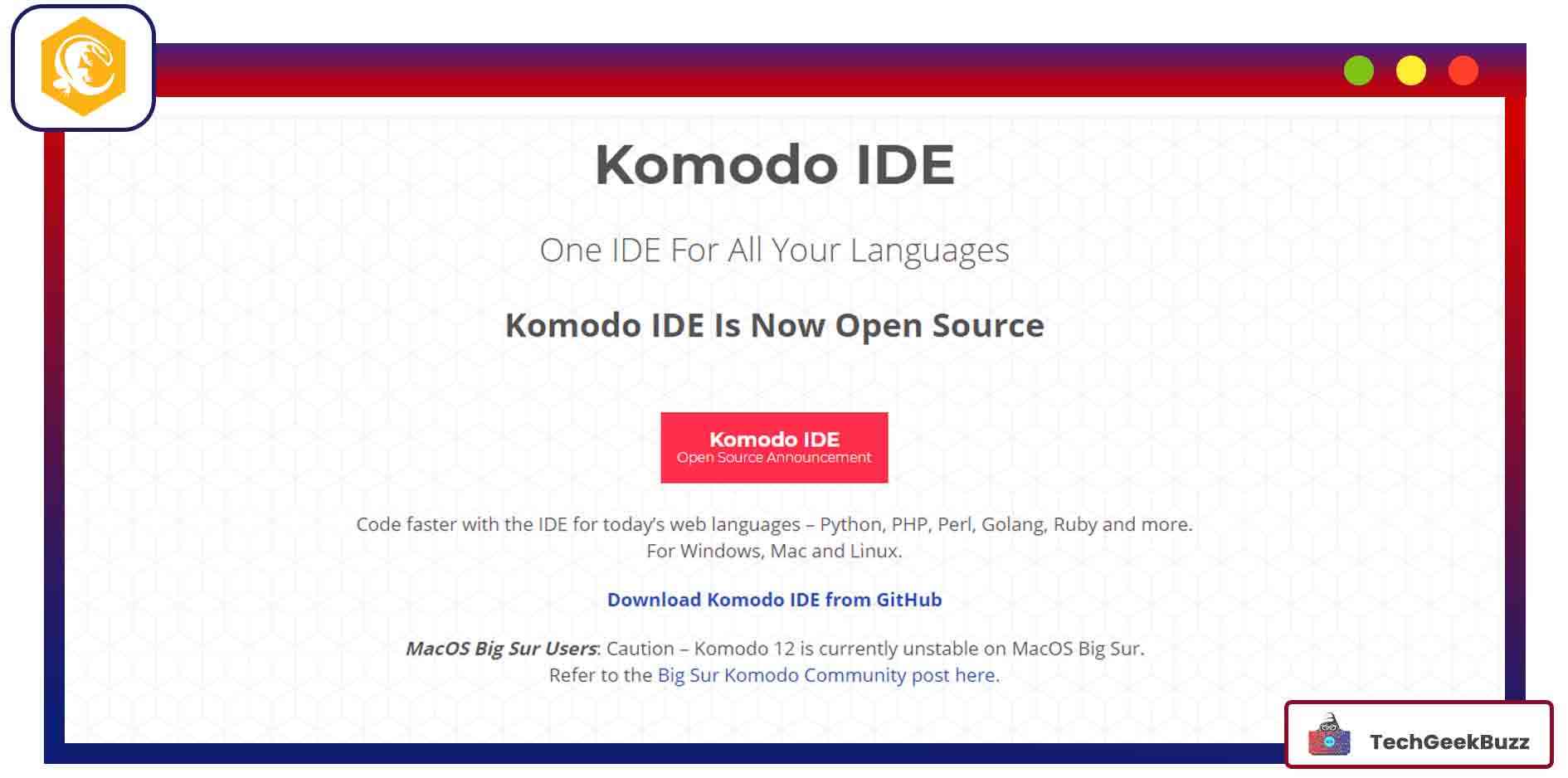
This is yet another best pick for developing Android applications. It supports various programming languages, including PHP, Go, Ruby, and Python. You can use it on Windows, Linux, and macOS platforms.
Features
-
Advanced Editor:
The following features of the advanced editor assist you in writing code:
- Syntax checking
- Syntax highlighting
- Split-view and multi-window
- Variable highlighting
- Code folding
- Code Intelligence: Code refactoring, XML autocomplete, matching braces, DOM viewer, and third-party library support are a few features that ease code writing.
- Graphical Debugging: It examines and inspects PHP, Python, Perl, Ruby, and Node.js code graphically. You get a Chrome debugger to debug web applications running in Google. Besides, you can debug your application on a remote server or an unsupported platform.
- Version Control and Integrated Tools: Integrates with version control systems, including Git, CVS, Mercurial, Subversion, Bazaar, and Perforce. Also, it supports various testing frameworks, such as PHPUnit, Go, PyTest, Prove, and RSpec.
Pricing
- Free: Free forever
- Team: $84/month
- Enterprise: Contact sales
9. Qt Creator
Developer: Qt Project
License: LGPL
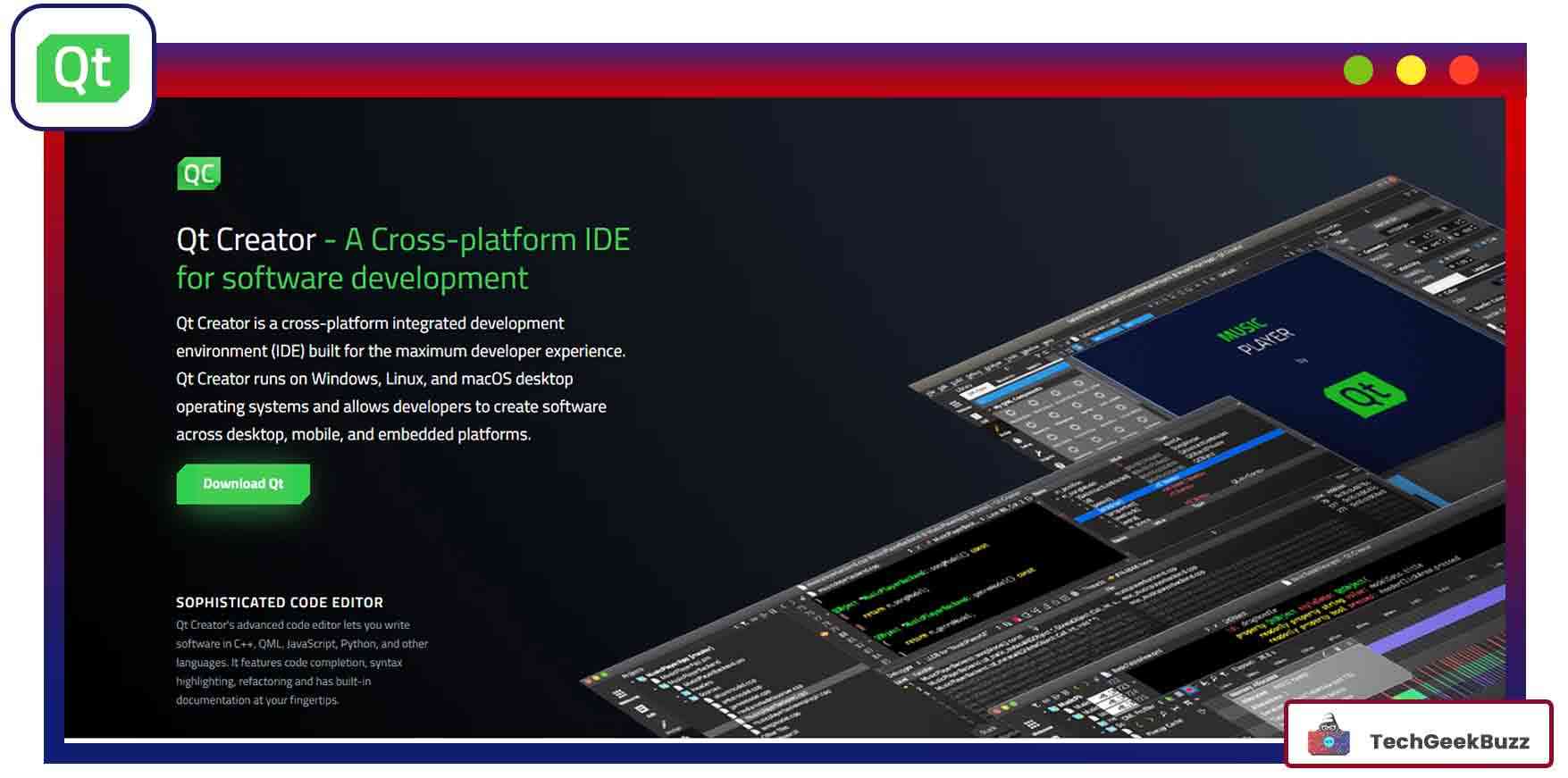
Qt Creator supports the development of both Android and iOS applications. It is compatible with Windows, macOS, BSD family, and Linux systems. Besides mobile applications, you can use it to build desktop and embedded applications.
Features
- Code Editor: An advanced code editor supports Python, C++, QML, and JavaScript. Its features include syntax highlighting, code completion, and refactoring. Also, it comes with built-in documentation at your fingertips.
- Version Control: Integrates with popular version control systems: Git, Perforce, Mercurial, and Subversion.
- Integrated UI Design: Integrated visual editors help develop C++ widget-based applications or fluid Qt Quick-based animated UIs using readymade controls.
- Project and Build Management: Creates all the necessary files for your project, whether you import an existing project or build the new one from scratch.
- Qt Device Emulator: Run and debug your application in conditions identical to those on your target device.
- Qt Quick Compiler: Compiles your source code into machine code and accelerates start-up time and UI performance.
Pricing
- Pro: $329/user/month
- Grow: Contact sales
- Teach: Contact sales
10. NetBeans
Developer: Apache Software Foundation, Oracle Corporation
License: Apache License 2.0
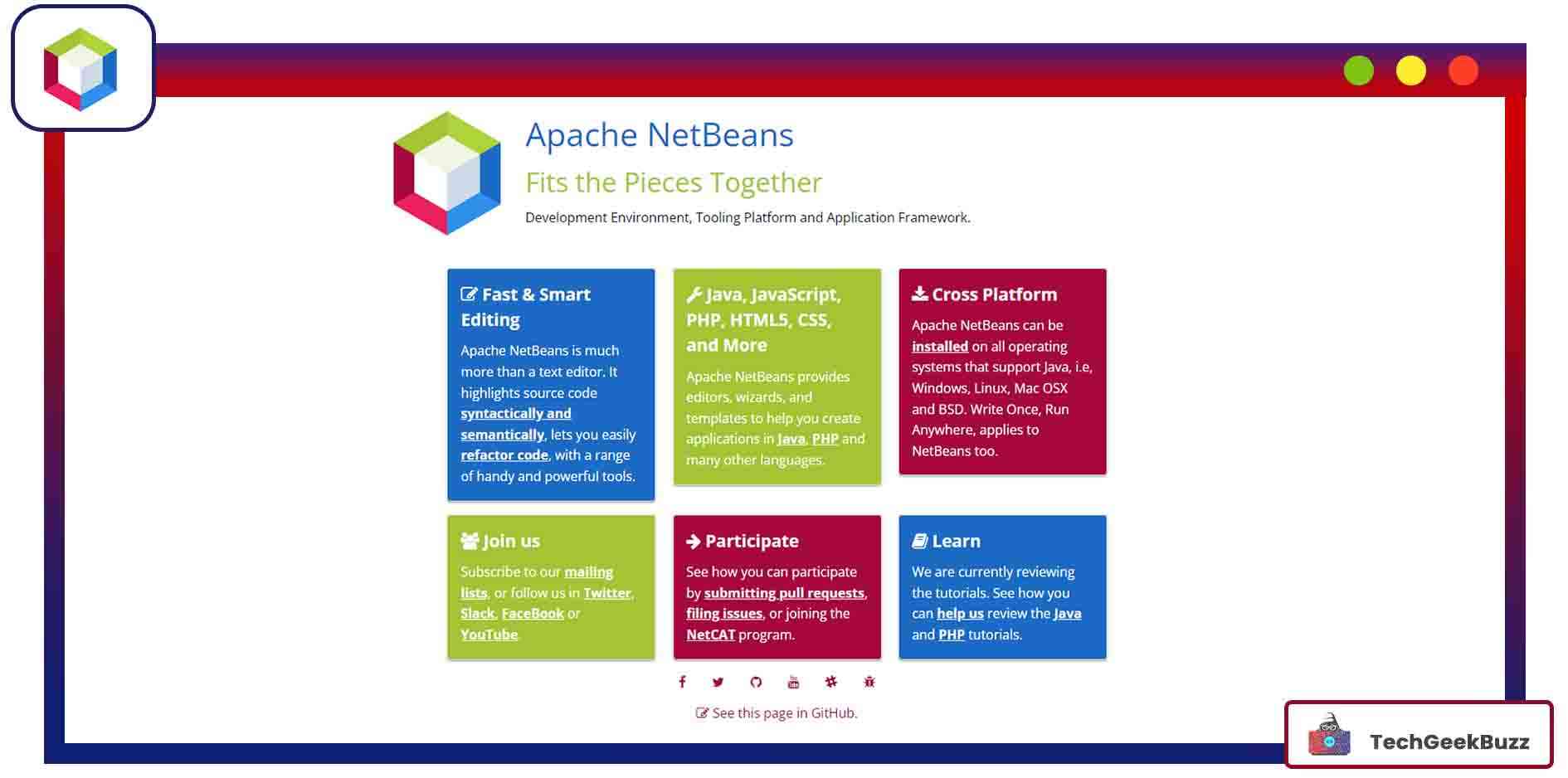
We'll wind up our list of the best IDEs for mobile app development with NetBeans. It is a widely used integrated development environment for developing apps in Java.
Besides Java, it supports various other programming languages, including JavaScript, C, C++, HTML5, and PHP. You can download it on Windows, macOS, Solaris, and Linux operating systems.
Features
- NetBeans Profiler: Get the runtime information of your application with a profiler. It also helps you identify memory leaks and optimize the speed of your application.
- GUI Design Tool: Prototype and design Swing GUIs by dragging and positioning UI components.
-
NetBeans JavaScript Editor:
Supports writing JavaScript, CSS, and AJAX code. The key features of the JavaScript editor are
- Syntax highlighting
- Code completion for native objects and functions
- Refactoring
- Automatic browser compatibility checks
- Generation of AJAX callbacks from a template
- Generation of JavaScript class skeletons
Pricing
Free
Conclusion
This was our list of the best IDEs for mobile app development. IDEs have made the software development process more manageable. They bring all essential developer tools to one place.
Android Studio, IntelliJ IDEA, Eclipse, Komodo Edit, and NetBeans are ideal for only Android development. On the other hand, Xcode is a dedicated platform for developing iOS apps. Qt Creator and Visual Studio support both Android and iOS app development.
After going through this article, you can choose an IDE that best suits your needs and budget.
People are also reading:
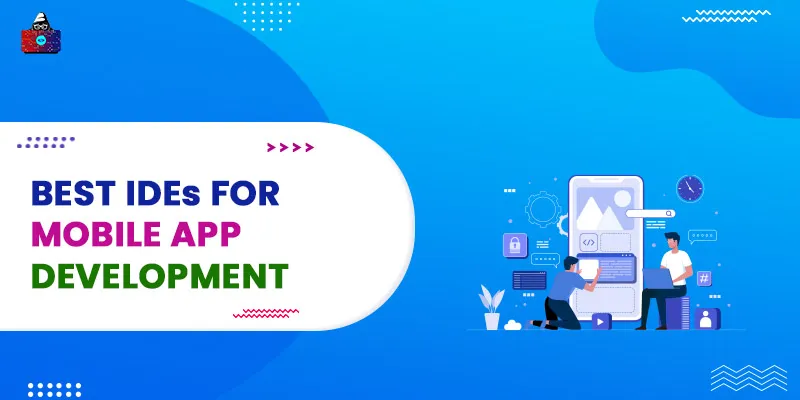


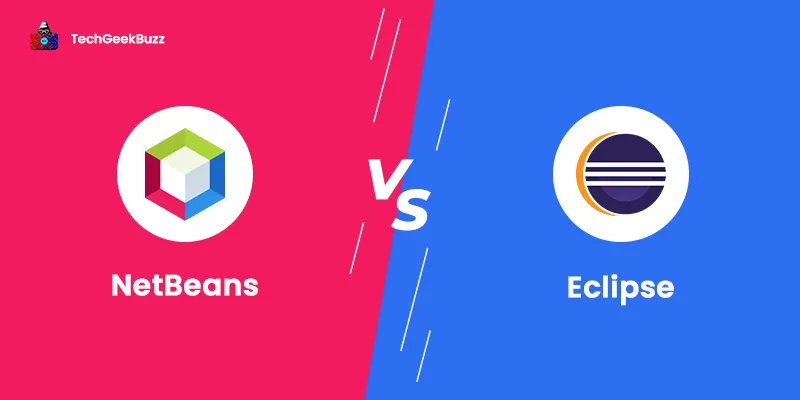
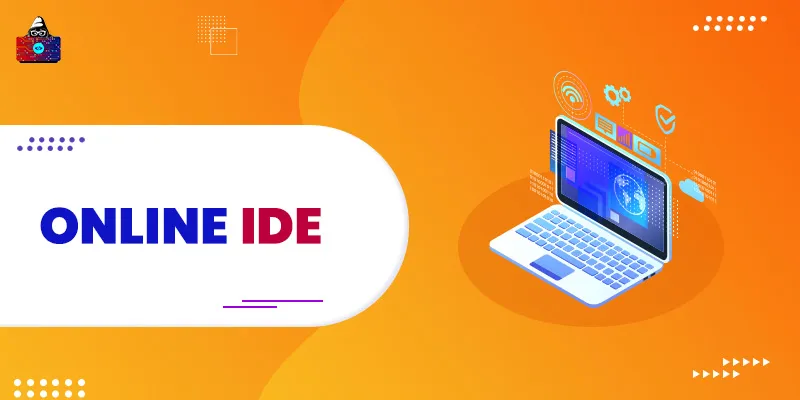
Leave a Comment on this Post